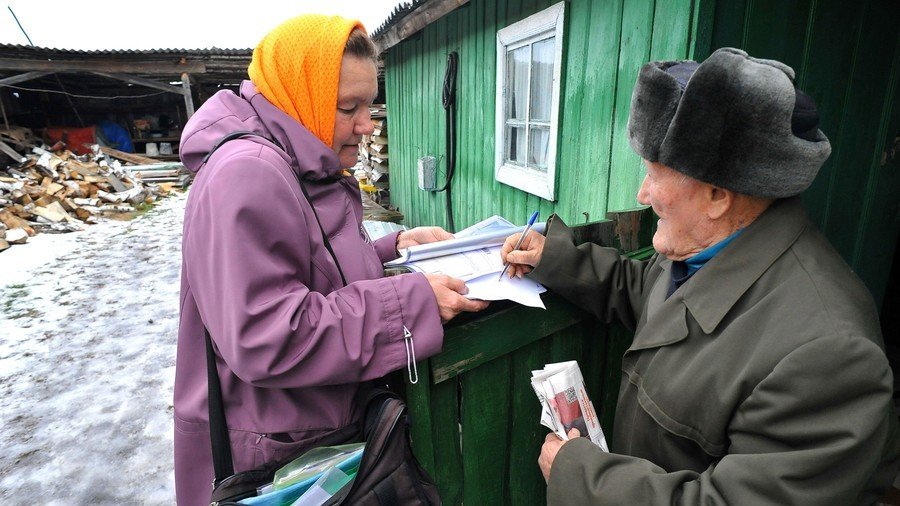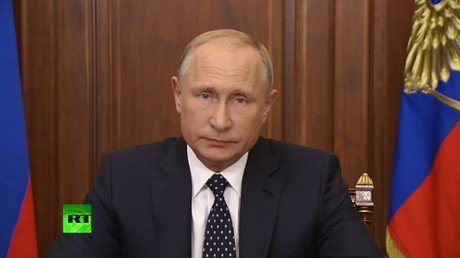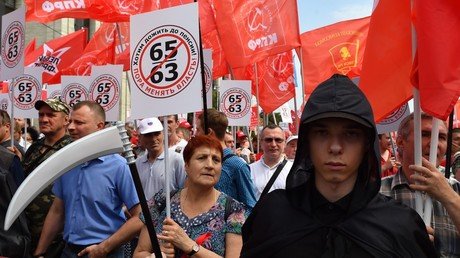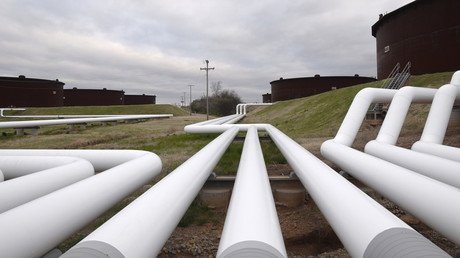Russian pension reform bill signed into law by Putin

Russian President Vladimir Putin has signed into law a motion ordering an increase to retirement age while allowing for a rise in payments and offering additional guarantees for citizens approaching the end of their working lives.
Increase in retirement age and pension payments
A package of bills regulating pension reform was published on Thursday and its main part will come into force on January 1, 2019. The main feature is the gradual increase of the retirement age from 60 to 65 years for men and from 55 to 60 years for women. The transition period is scheduled to fully complete by 2028 and 2034 respectively.
The saved funds would allow for increases in the monthly retirement payments by 1,000 rubles (about $15) already in 2019. This may not seem much, but for ordinary elderly Russians this is significant as in the beginning of 2018 the size of average monthly pension payment amounted to about 13,300 rubles – just over $200.
The gradual raise in payment rates will continue and by 2024 the average pension in Russia will be slightly over 20,000 rubles (over $300 at current rate).
Opposition and Putin’s intervention
The initial bill prepared and drafted by the government ordered an even higher increase in retirement age and quite expectantly was met with resistance from opposition parties, criticism in mass media and even several protest rallies. This opposition resulted in a setback in positions of parliamentary majority party United Russia which had backed the bill – its candidates lost in several gubernatorial elections in early September and it also lost the majority positions in some regional legislatures.
Putin personally intervened in the situation by making a televised address to the nation in which he said that the unappealing reform was necessary as a growing deficit in the Russian pension system caused mainly by the demographic situation was putting it on the brink of total collapse.
Amendments softening negative impact
The president went on to propose several amendments to soften the bill. These included a smaller increase of the retirement age for women and also introducing the category of citizens of pre-retirement age – five years before the actual retirement age at given moment.
These people will enjoy additional guarantees from the state, such as higher unemployment benefits and, more importantly, criminal responsibility for employers who sack such people or refuse to hire them without a valid reason.
Putin’s other amendments included increases in retirement rates for several groups of pensioners, such as residents of remote rural areas or indigenous people in the northern regions and also allowing pensioners to keep all tax benefits until the reform is fully completed.
Lawmakers from the United Russia party also sought to repair the damage to their ratings and drafted an amendment ordering the transfer of all funds, seized from people convicted of corruption, into the Pension Fund. The Russian Federal Treasury has estimated that the motion would give the pension fund additional 1.8 billion rubles or over $27 million.
















